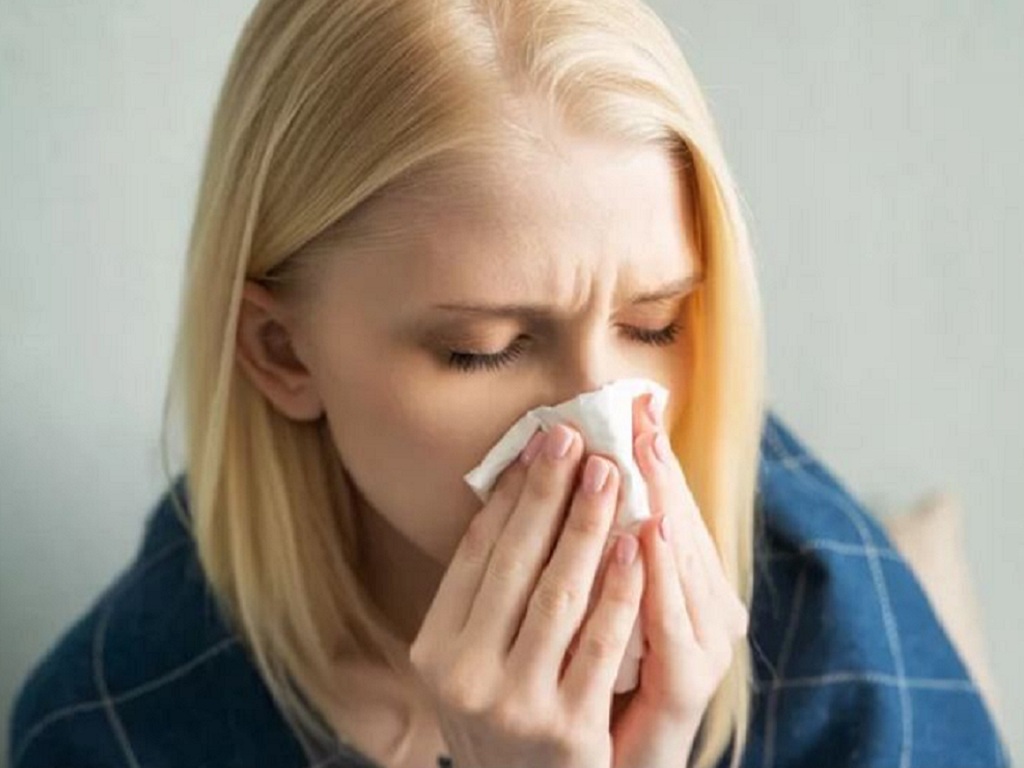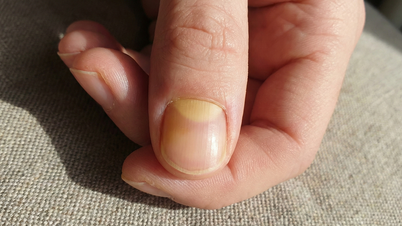During the day, allergy symptoms are relieved by antihistamines. But at night, symptoms tend to be more severe, causing more sneezing, stuffy nose, itchy throat and watery eyes, according to the US health website Healthline .

Allergy symptoms may be worse at night, causing nasal congestion that makes it difficult to fall asleep.
Statistics show that about 90% of people with allergies have had trouble sleeping because their symptoms worsen at night. There are many reasons why allergy symptoms become more uncomfortable at night.
First, when lying down, this position will cause all the mucus and dust from the nose to go down the throat. As a result, the air passing through the trachea in the throat will no longer be able to circulate normally, leading to a feeling of difficulty breathing.
Additionally, people with dust mite allergies may experience more severe symptoms at night because their bedrooms are a favorite habitat for dust mites. In addition to dust mites, mold can also have a similar effect. Mold can grow somewhere around the bed, especially if the bed is located near a bathroom and is not well ventilated.
Another cause is pollen. Pollen is one of the most common causes of seasonal allergies. It can be carried into the bedroom by the wind or cling to clothes, hair, skin and items carried with you such as backpacks and handbags. If the pollen somehow falls on the mattress, the allergic person will sleep with it. The symptoms will be difficult to avoid.

Leaving your mattress out in the sun can help kill mold and bacteria lurking inside.
Dog and cat dander is another factor that makes allergies worse at night, especially for people who let their dogs and cats into the bedroom or climb into bed. Cockroaches also have a similar effect because their saliva, feces and body parts can be scattered throughout the house. Meanwhile, statistics from the American Association of Allergy, Asthma and Immunology show that 98% of homes in cities have cockroaches.
Finally, breathing at night can also contribute to worsening allergy symptoms. Because when you have a stuffy nose due to allergies, you will often breathe through your mouth. In many situations, this breathing is necessary, even though it can push allergens deeper into your throat and lungs.
To avoid nasal congestion, runny nose or itchy throat at night due to allergies, experts recommend cleaning the bedroom regularly, especially in places with a lot of dust and mold. Carpets contain many allergens so should be used sparingly, if used, must be washed regularly.
Bed sheets and pillowcases should also be washed. Using an air purifier, killing cockroaches, keeping pets out of the bedroom, and closing windows at night to keep pollen out can significantly reduce allergy symptoms, according to Healthline .
Source link





![[Photo] Prime Minister Pham Minh Chinh receives President of Cuba's Latin American News Agency](/_next/image?url=https%3A%2F%2Fvphoto.vietnam.vn%2Fthumb%2F1200x675%2Fvietnam%2Fresource%2FIMAGE%2F2025%2F12%2F01%2F1764569497815_dsc-2890-jpg.webp&w=3840&q=75)





































































































Comment (0)